When most people think about their garden, the last thing on their mind is pond sludge. However, this dark and sometimes foul-smelling material can actually be great for your plants! In this guide, we will answer some common questions about pond sludge and provide tips on how to use it in your garden. So whether you’re looking to improve your soil quality or get rid of pesky pests, read on for all you need to know about using pond sludge in the garden!
What is a Pond Sludge?
A pond sludge is simply the organic matter that accumulates at the bottom of ponds over time. This material can include leaves, twigs, algae, and other decomposing organisms. As if it didn’t sound appealing enough, pond sludge is also often full of harmful bacteria and toxins.
In extreme cases, pond sludges can lead to fish kills.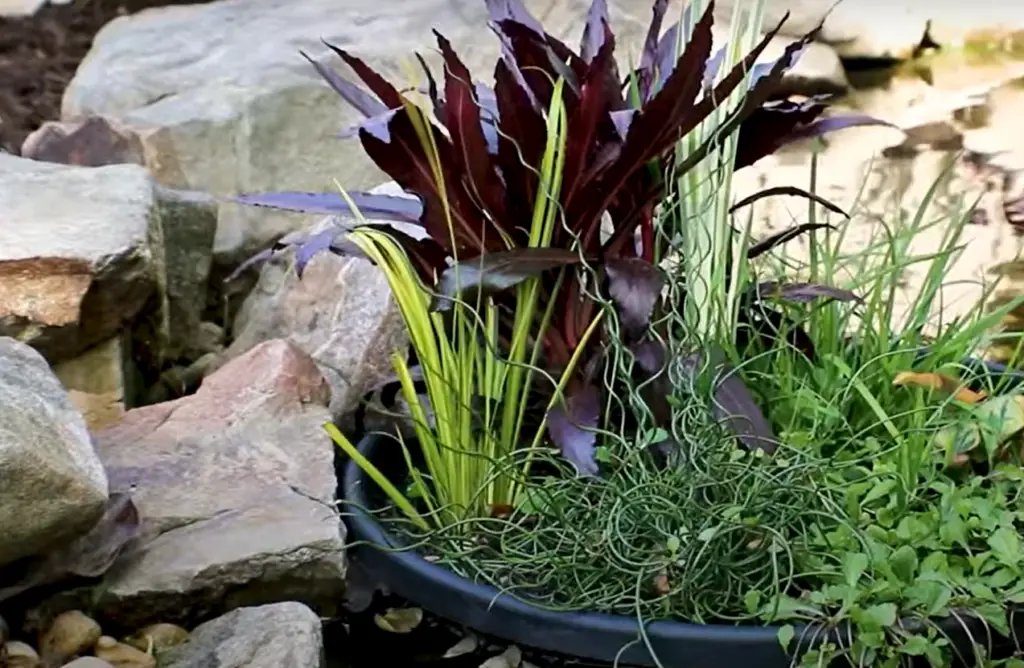
But why does pond sludge form in the first place? There are a few reasons for that.
Warm temperatures
One of the reasons is due to warm temperatures. When the water in your pond gets warmer, it can cause a process called eutrophication to occur. This happens when there’s an overgrowth of aquatic plants and algae. As these organisms die, they sink to the bottom of the pond and decompose. This decomposition process uses up oxygen in the water, which can lead to fish kills.
Abundance of nutrients in water
Another reason for pond sludge is an abundance of nutrients in the water. This can be from things like runoff from fertilized lawns, animal waste, and septic systems. These nutrients provide food for the aquatic plants and algae, which again, leads to eutrophication and the formation of pond sludge. [1],[2]
Benefits of Using a Pond Sludge as a Fertilizer
However, there are some benefits to using pond sludge as a fertilizer. Pond sludge is rich in nutrients that can help to improve the health of your plants.
For one, it has high levels of phosphorus, which is essential for plant growth. It also contains nitrogen, potassium, and other minerals that can help to promote healthy plant development.
Pond sludge can also contain other minerals that can be beneficial to plants. Applying pond sludge to your garden can help to improve the soil quality and fertility.
Being an organic matter, pond sludge also helps to promote drainage. So by utilizing it in your garden, you can not only keep your pond clean but also improve the health of your plants.
However, it’s important to note that if you have used chemicals or pesticides in your pond, these can also be present in the sludge. In this case pond sludge cannot be used as a fertilizer and should be disposed of properly. [3],[4],[5]
How to Harvest Pond Sludge
Now that you know all the benefits of using pond sludge as a fertilizer, you might be wondering how to go about harvesting it. Luckily, there are a few different methods that you can use to harvest pond sludge.
Using a pond vacuum
One of the easiest ways to harvest pond sludge is to use a pond vacuum. This method is great because it doesn’t require any manual labor on your part. All you have to do is attach the vacuum to your garden hose and let it do its job.
They are designed specifically for this purpose, so they are very effective at removing all of the muck from your pond.Once the vacuum has finished running, you can simply empty it into your compost bin or wherever else you want to store the sludge.
Using a bucket
If you don’t have a pond vacuum, you can still harvest pond sludge using a bucket. This method is a bit more labor-intensive, but it will still get the job done. Bucket scoping is best for small ponds or if you only need a small amount of sludge. To do this, just lower a bucket into the pond and scoop up some of the sludge from the bottom. Be sure to clean out the bucket afterwards so that you don’t introduce any new organisms into the pond.
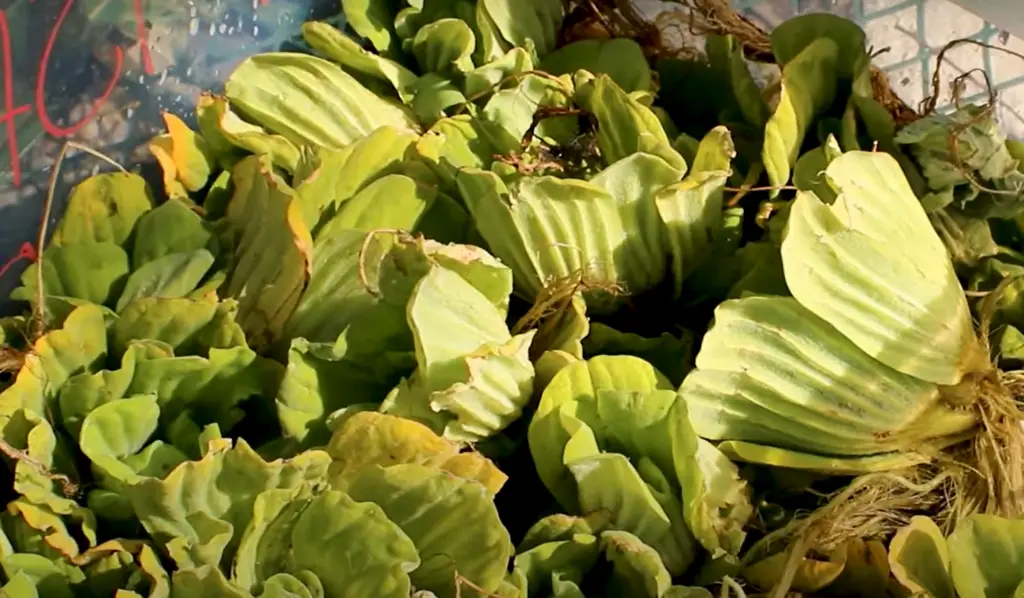
If you are going to scoop the sludge out of the pond, make sure that you do not disturb any fish or other aquatic creatures that might be living in the pond. Also, be sure to wear gloves and a face mask to protect yourself from bacteria.
Using a net
Another option for harvesting pond sludge is to use a net. This method is similar to using a bucket, but it is less likely to disturb the creatures living in your pond. You can either purchase a net specifically designed for harvesting pond sludge, or you can use a regular fishing net.
The sludge will start to collect in the net, and you can then remove it from the pond.Keep in mind that methods above only remove the physical sludge from the pond. If you want to remove the harmful bacteria and toxins as well, you will need to use a pond filter. Pond filters are designed to remove these contaminants from the water, making it safe for both people and animals.
You may also use some of the specialized pond sludge removal products that are available on the market. These products usually contain beneficial bacteria that will help to break down the sludge and remove it from the pond. [6]
Using Pond Sludge in Your Garden
Once you have harvested your pond sludge, you can start using it in your garden. Pond sludge is an excellent fertilizer for a variety of plants, including vegetables, fruits, and flowers. There are a few different ways that you can use pond sludge in your garden.
Make sure it’s decomposed enough
Before you start using pond sludge in your garden, you need to make sure that it is decomposed enough. If the sludge is not decomposed enough, it can “burn” your plants.
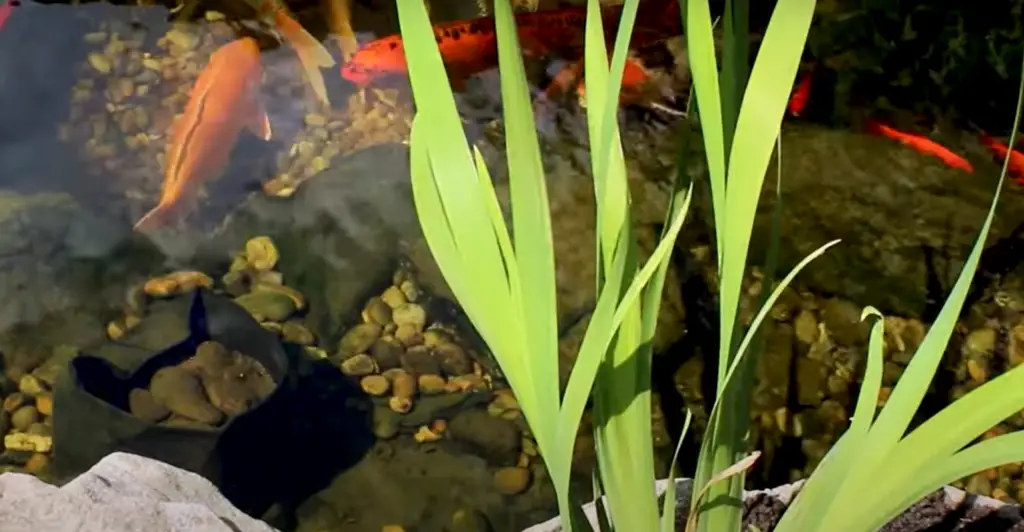
To test if your pond sludge is decomposed enough, take a small amount and mix it with water. Then, use a pH test kit to test the mixture. The ideal pH for pond sludge is between six and seven. If the mixture is too acidic or alkaline, then it’s not ready to use yet.
Apply it directly to the soil
One of the simplest ways to use pond sludge in your garden is to apply it directly to the soil. This is especially effective if you are growing plants that like acidic soils, such as blueberries and rhododendrons.
To do this, simply spread a layer of pond sludge over the soil and then work it in with a shovel or rake. If you find that the smell of pond sludge is too strong for you, simply add some leaves or other organic matter to help disguise the smell. [3]
Use it to make a potting soil
Being an organic matter, pond sludge can be used to make potting soil for your plants. This is a great way to use pond sludge if you have a lot of it. To make potting soil, mix one part pond sludge with perlite peat moss. You can also add some other ingredients, such as vermiculite or sand.This mix will provide your plants with the nutrients they need to grow healthy and strong. [3],[4],[5]
Creating a compost bin
Another way to use pond sludge is to create a compost bin. This will allow the sludge to break down and turn into rich, nutrient-dense compost that your plants will love.
The first thing you need to do is gather some pond sludge. We’ve already established that this shouldn’t be too difficult if you have a regular household nuclet. Next, drain the excessive water from the sludge.
After the water has been drained, it’s time to mix the pond sludge with some other ingredients.
You should definitely add some brown materials to your compost, as these will help balance out the nutrients. Things like dead leaves, twigs, and bark are all great options. You can also add green materials if you have them, such as grass clippings or vegetable scraps. These will add even more nutrients to the mix.
Now that you have all of your ingredients, it’s time to start layering them in a compost bin. Start with a layer of brown material, then add a layer of sludge on top of that. Alternate between layers until you’ve used up all of your ingredients.
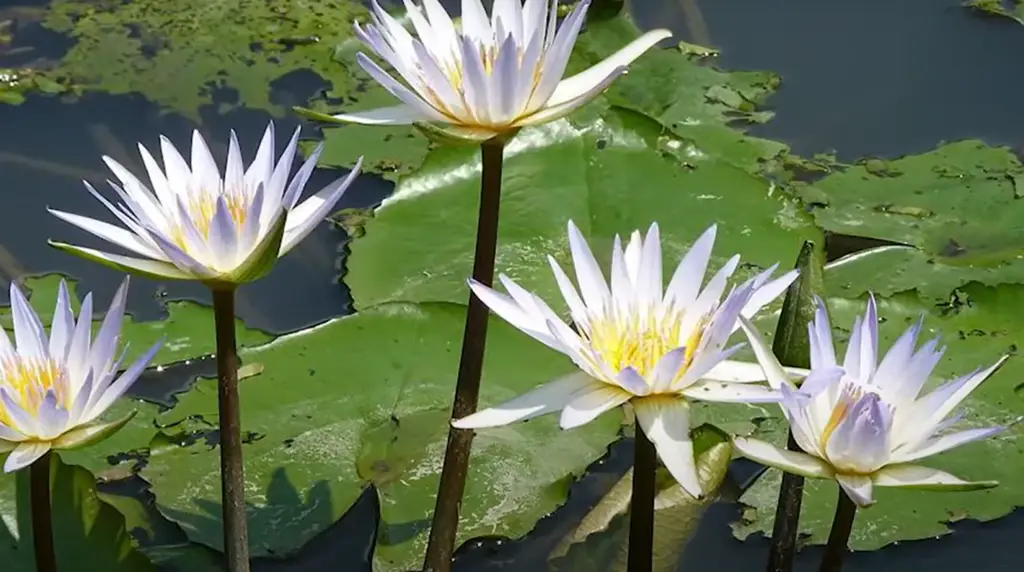
Once you have mixed the ingredients together, you will need to moisten the compost bin and then turn it every few days. After a few weeks, you will have some nutrient-rich compost that you can use in your garden.
Just make sure that you mix it in well so that it doesn’t clump together.
After your compost is fully decomposed, you can add it to your garden beds or use it as a potting mix for your plants. Thanks to potassium and phosphorus, compost is great for promoting blooms and helping plants grow.
Comparison of Pond Sludge and Compost as Soil Amendments for Garden Plants
Gardeners are always on the lookout for ways to improve their soil and promote healthy plant growth. One potential source of soil amendment is pond sludge, the organic matter that accumulates at the bottom of ponds and other bodies of water. But is pond sludge actually beneficial for garden plants? In this table, we compare the nutrient content and other key characteristics of pond sludge and compost, a popular soil amendment made from decomposed organic matter.
| Pond Sludge | Compost | |
|---|---|---|
| Nitrogen (N) | 1.5% | 1.5-2.5% |
| Phosphorus (P) | 0.5% | 0.5-1.5% |
| Potassium (K) | 0.5% | 0.5-2.5% |
| pH | 6.0-8.0 | 6.0-8.0 |
| Organic Matter | 70-90% | 40-60% |
| Pathogens | Potential for harmful bacteria and viruses | Generally safe due to high temperatures during composting |
| Heavy Metals | Potential for accumulation of heavy metals | Low risk if composted from safe sources |
The table compares several key indicators of pond sludge and compost as soil amendments. Both materials contain similar levels of nitrogen, phosphorus, and potassium, three essential nutrients for plant growth. However, compost typically contains slightly higher levels of these nutrients than pond sludge. Both materials also have a similar pH range, which is suitable for most garden plants.
The main difference between pond sludge and compost is in their organic matter content. Pond sludge contains much higher levels of organic matter than compost, which can be beneficial for improving soil structure and water retention. However, pond sludge also has a higher risk of containing harmful pathogens and heavy metals that can be harmful to garden plants and humans if not properly managed.
Overall, while pond sludge can potentially be a useful soil amendment for gardeners, it is important to carefully assess its nutrient content and potential risks before adding it to your garden soil. Compost, on the other hand, is a more reliable and safe option for most gardeners looking to improve their soil.
FAQ
Is muck good for the garden?
It’s a common question with no easy answer. Pond sludge, or muck, is organic matter that accumulates at the bottom of ponds over time. This layer of decomposing leaves, grass, and other debris can be several feet thick in some cases. Some people believe that this “muck” is beneficial to gardens because it contains nutrients that can help plants grow. Others worry that the muck may contain harmful bacteria or toxins that could harm plants or pollute groundwater.
But in reality, there is no easy answer. It depends on a number of factors, including the type of muck, the amount of muck, and how it is used.
What is pond algae good for?
Pond algae is a type of aquatic plant that can be beneficial for your pond. Algae helps to keep your pond water clean by absorbing nutrients and producing oxygen. However, too much algae can be a problem. Excess algae can cause the water in your pond to become murky and smelly.
Should I remove pond sludge?
This is a difficult question to answer because it depends on the pond sludge itself and what you want to use it for. If you have fish in your pond, then you should remove the pond sludge because it can contain harmful bacteria that can make your fish sick. However, if you don’t have fish in your pond, then you can leave the pond sludge because it can be good for your plants.
What can I do with a pond muck?
Pond muck can actually be quite useful for the garden. It is full of nutrients that can help to fertilize your plants. You can also use it to help control weeds. However, you should be careful not to use too much pond muck. If you use too much, it can actually harm your plants.
It is also important to make sure that the pond muck you use is from a clean source. If it is from a polluted pond, it could contain harmful toxins that could damage your plants or even make you sick.
Would you recommend using pond sludge as a fertilizer?
Yes, we would definitely recommend using pond sludge as a fertilizer for your garden! Pond sludge is packed with nutrients that are essential for plant growth, so it can really give your plants a boost. Plus, it’s a great way to recycle something that would otherwise just end up in the landfill.
If you’re thinking of using pond sludge in your garden, just make sure that you get it from a reputable source and that you follow the instructions on how to use it properly. With a little bit of care, you can definitely turn pond sludge into black gold for your garden!
Is there a particular way to prepare pond sludge before using it as a fertilizer?
Pond sludge can be applied directly to garden beds as a fertilizer. However, it is best to mix it with other organic matter, such as compost, before applying it to the garden. This will help to aerate the soil and improve drainage. Also, be sure to apply the sludge in a thin layer, as too much can smother plants.
Pond sludge can be applied to both vegetable and flower gardens. However, it is important to note that pond sludge should not be used on edible crops, such as fruits and vegetables, unless it has been composted first. This is because pond sludge may contain harmful bacteria that could contaminate food crops.
Are there any risks associated with using pond sludge in your garden?
Yes, there are a few risks. The first is that pond sludge can contain harmful bacteria and pathogens that can contaminate your soil and plants. Additionally, pond sludge can also contain high levels of nutrients that can lead to excessive plant growth and weed problems. Finally, if not properly managed, pond sludge can also release greenhouse gases into the atmosphere.
These risks can be mitigated by taking proper precautions and managing the material properly.
What kind of plants are best suited for gardens with pond sludge?
Pond sludge is an excellent source of nutrients for plants. It is high in nitrogen, phosphorus, and potassium, which are essential for plant growth. Pond sludge can also improve the structure of your soil, making it more fertile and better able to retain water.
Some of the best plants for gardens with pond sludge include:
- Nasturtiums
- Marigolds
- Zinnias
- Geraniums
- Hibiscus
- Impatiens
These plants are all tolerant of poor soils and will thrive in a garden with pond sludge. If you are looking to add some color to your garden, these plants are a great option.
What kind of pond sludge is good for the garden?
Generally, pond sludge refers to the accumulation of organic matter at the bottom of a pond. This can include leaves, twigs, and other debris that have fallen into the water. Pond sludge can also contain beneficial bacteria and nutrients that can be beneficial for your garden.
One type of pond sludge that is often used in gardens is peat moss. Peat moss is a type of decomposed organic matter that can help improve soil structure and drainage. Peat moss can also help retain moisture in the soil, which can be helpful during periods of drought.
Another type of pond sludge that can be beneficial for your garden is composted manure. Composted manure contains nutrients that can help promote plant growth.
What are the benefits of using pond sludge on gardens?
Pond sludge is a great way to add nutrients and organic matter to your garden. It can also help improve drainage and aeration in the soil. Pond sludge can be used as a top dressing for lawns or gardens, or it can be mixed into the soil before planting.
Sludge from ponds is also a good source of beneficial bacteria and fungi. These microorganisms help break down organic matter, which helps release essential nutrients into the soil. They can also help improve drainage and aeration in the soil.
Pond sludge can be applied to gardens in several ways: as a top dressing, mixed into the soil, or used as mulch around plants. Mixing pond sludge into the soil before planting can help improve drainage and aeration. And using pond sludge as mulch around plants can help retain moisture in the soil and prevent weeds from germinating.
Is there a right or wrong way to use pond sludge in your garden?
Pond sludge is full of nutrients that can help plants grow. However, there are a few things to keep in mind when using pond sludge in your garden. First, make sure that the pond sludge is completely dry before using it, as wet pond sludge can harbor harmful bacteria. Second, only use a small amount of pond sludge at a time, as too much can overwhelm plants and cause them to die. Finally, make sure to mix the pond sludge into the soil well before planting anything in it. By following these simple tips, you can use pond sludge to give your garden a boost!
Can you overuse pond sludge in your garden?
Pond sludge can actually be beneficial to your garden, as it contains a high concentration of nutrients that can help promote plant growth. However, you should be careful not to overuse pond sludge, as this can lead to an accumulation of toxins in the soil. If you do use pond sludge in your garden, be sure to compost it properly and only use it sparingly.
Is pond soil good for plants?
Pond soil is loaded with nutrients that plants love, including Nitrogen, Phosphorus, and Potassium. It also contains a variety of trace minerals that are beneficial to plant health. In addition, pond sludge typically has a high organic matter content, which helps improve drainage and aeration in the garden.
Just make sure to mix it well with your other soil or compost before planting. And as always, consult your local gardening expert for specific advice on using pond sludge in your garden.
Is pond water safe for vegetables?
The answer to this question is a bit complicated. While pond water itself is generally safe for vegetables, the sludge that often accumulates at the bottom of ponds can contain harmful bacteria and other contaminants. If you’re planning on using pond sludge in your garden, it’s important to take some precautions to ensure that your plants will be safe.
One way to use pond sludge safely is to mix it with other materials like compost or topsoil. This will help to dilute any potential contaminants and make sure that your plants get the nutrients they need. You can also test the pH level of the sludge before using it, and make sure it falls within a range that’s safe for plants. Finally, avoid using pond sludge near any plants that will be eaten raw, like salad greens.
With a little care, you can safely use pond sludge to fertilize your garden and give your plants the nutrients they need to thrive. Just be sure to take some precautions and use it wisely!
Useful Video: Garden Guides: What Plants Are Good For Your Pond?
Conclusion
If you have a nasty pond that’s full of sludge, you may be wondering what to do with it. Well, you’re in luck! Pond sludge can actually be quite good for your garden. It can help to add nutrients and improve the quality of your soil. You can use it to create a compost heap or add it to your garden beds. Just be sure to use it sparingly, as too much pond sludge can actually harm your plants. Thanks for reading, and we hope this was helpful. Let us know in the comments if you have any questions or tips of your own about pond sludge and gardening!
References:
- https://healthyponds.com/pond-muck-what-is-it-how-to-fix-it/
- https://letstalkscience.ca/educational-resources/stem-in-context/eutrophication-why-you-should-care-about-pond-scum
- https://www.btlliners.com/can-i-put-pond-sludge-on-the-garden
- https://mybackyardlife.com/is-pond-sludge-good-for-garden/
- https://gardendoctor.org/how-to-dispose-of-pond-sludge-do-not-throw-it-away/#how-to-make-compost-with-pond-sludge
- https://bigyardfun.com/is-pond-sludge-good-for-gardens/?utm_source=rss&utm_medium=rss&utm_campaign=is-pond-sludge-good-for-gardens






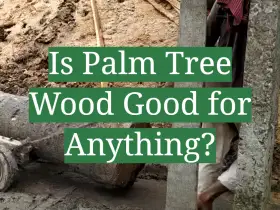
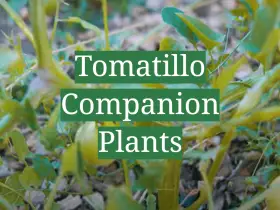
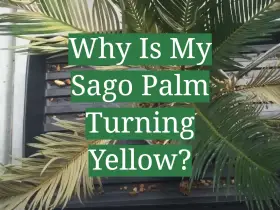
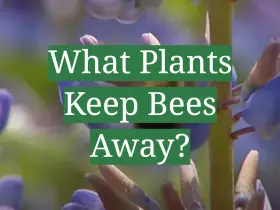
Leave a Reply
View Comments